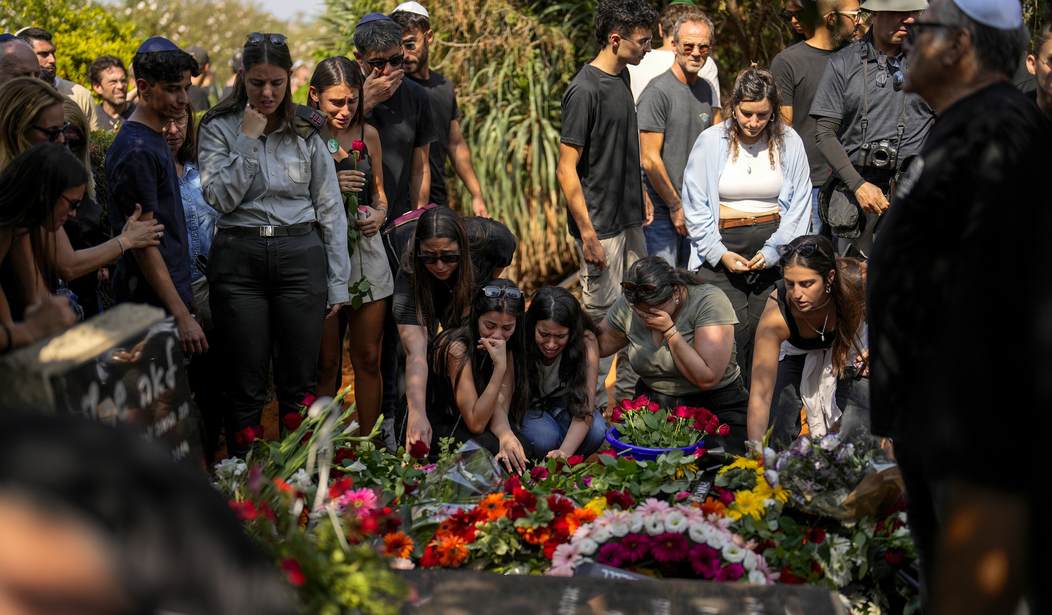I wander through Kibbutz Aza with my friend. Together, Roi and I look at the burned shells of homes pockmarked with bullet holes and pierced through with rockets from the October 7th Hamas attack. It’s difficult to imagine that these homes, now monuments to the dead, were once vibrant with life. We listen to Liehr, a resident who survived the ferocious attacks, describe in detail the friends and relatives who lived in these homes. One couple planned to wed. Now, they are joined for eternity in death. A photo on a blackened porch in front of a lopsided home shows a family with three adorable, smiling children, lost to the world forever. Liehr sorrowfully says they were the delight of their neighborhood.
I wander again, this time in my mind. I go back to Birkenau, the death camp just a mile or so from the larger Auschwitz complex. In April 1984, less than 40 years after the War ended, Birkenau still stands as it did the day it was liberated in 1945, open to man and beast. The gate hangs open, the fence partially torn down the secrets within revealed to all who dare to enter. The wooden wheelbarrows used to transport gassed Jewish corpses to the crematoria cower in the shadows of the barracks as if fearful of being exposed for their gruesome role in Birkenau’s unspeakable mission.
I wander with my friend Joel about the lonely camp, accompanied only by the stories we have heard from survivors and the accounts we have read in books. We enter the barracks where Jews spent the last few hours of their tortured lives. We see the desperate pleas, not for the help they knew would never come, but for remembrance. The scrawls scratched into the walls in Yiddish, Hebrew, and Polish are the names of children, families, towns, birthdays. All cry out to be remembered.
Roi and I venture onto the porch of a home in Kfar Aza. A dead couch ripped to shreds stands at one the side, haphazardly piled with clothing and books, the detritus of a former life. A lonely wooden table, used for outdoor meals in better times, faces the couch, accusing the living and begging for remembrance.
Recommended
Joel and I wander out of the Birkenau barracks. We confront the remains of the crematoria, destroyed by the Nazis and their Polish collaborators in a vain attempt to hide their atrocities. This was the ashen fate of hundreds of thousands of my people. Some were fortunate enough to be shoved dead into the gaping jaws of finality; others went into the fire alive. The hopes and dreams of both the dead and the living burned within.
I enter a second kibbutz house, accompanied by Roi and by my thoughts. Grimacing weeds begin to creep up its sides. The door hangs askew. The blackened walls and charred furniture are silent witnesses to the fierce firefight that ended only a short while ago. A young couple just beginning to enjoy life together try in vain to repel the invading enemy. The locked door, barred with tables and chairs, are no match for grenades launched through the windows and tires set ablaze around their home. Their burned bodies cry silently for recognition.
Joel and I roam the vast camp. We find ourselves standing before a large, lined pit filled with water. It takes a few moments for our minds to comprehend what we are seeing. The bones and ashes floating on the surface force us to understand. We want to cry, but we can’t. We want to vomit, but we can’t do that either. There are no words. In silence, we look at each other and continue walking—and thinking.
Roi and I wander through the untouched part of Kfar Aza. It’s a beautiful day in southern Israel. The weather is perfect: warm, but not hot; breezy, but not windy. The kibbutz is a modern Garden of Eden. The graceful lanes, gently curved and lined with fruit trees and native plants, artfully show nature at its best. The homes are designed to blend seamlessly into the Negev’s natural beauty. Paradoxically, the atmosphere seems gentle and innocent, like the dawning of a fresh, new day. I’m shocked and I’m angry. I’m angry at the trees, at the plants, at the weather and at all this beauty for being so serene in the Valley of Death.
Our cab drives us through the Auschwitz countryside. The villages are peaceful and the plowed fields look eager to show off their bounty. The well-kept trees swell with spring life. The villagers seem content to work their fields in the present, as if the past never existed.
I look over the fence into Gaza. The distant sounds of gunfire and explosions remind me that there’s still a war going on. I realize with the clarity of a 40-year journey and the insight of a member of a timeless people that there will always be wars against the Jews. Nazis and their collaborators—Poles, Ukrainians, Russians, Greeks, French, Dutch, and others. Hamas murderers and their cruel Persian patrons will always exist, but so will the God-given strength of the immortal Jewish People. We will overcome, we will survive, as Jews always have. I am angry no longer.

























Join the conversation as a VIP Member